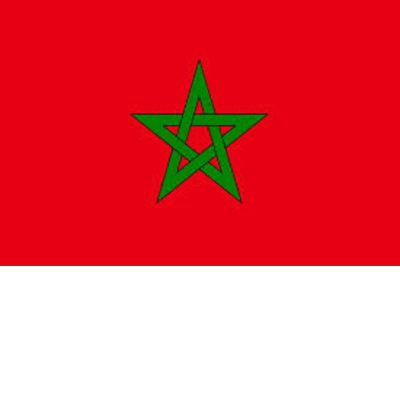1 . Organization of powers
Morocco is a hereditary monarchy , governed by the Constitution of 1972, revised in 1980, 1992 and again in September 1996.The monarch, who must be male, is the spiritual and temporal leader ; Head of State , appoints the Prime Minister and members of the government. The king has the power to order the revision of legislation and to dissolve the Assembly. It also commands the armed forces.A revision of the Constitution introduced the bicameral Parliament composed since September 1996 the House of Representatives , whose members are elected for six years by direct suffrage, and the House of Councillors , new body, elected by the community representatives local , professional organizations , and employees. The new Constitution has expanded the powers of the legislature , at the same time that was created a Constitutional Court.
2 . political parties
The Moroccan political system to a multiparty however has limitations related to the rule of the king. Constitutional Democratic Popular Movement ( MPCD ) , conservative party founded in 1959, the National Rally of Independents (1978) , the Constitutional Union (1983) and the National Democratic Party ( 1981) are the main pro-government parties . Among the opposition forces are Istiqlal ( "independence" ) , a nationalist party founded in 1943 , the Organization of Democratic and Popular Action ( OADP ) , the party of Progress and Socialism (PPS) . In 1998, the Socialist Union of Popular Forces ( USFP ), large left party generally in opposition accepts the nomination leader , Youssoufi , as Prime Minister .In June 1996 , King Hassan II authorizes the entry of moderates within the Islamic PMDC . Islamist movements remain closely controlled or repressed. The sovereign, eager to introduce a dual system , multiplies , from 1990 , the political opening towards the opposition attempts. The major parties do not however want to participate in government formed in February 1995, the king refused the requirements first: constitutional revision , new elections and the departure Interior Minister Driss Bari, whose name was often associated with violations of human rights by the Moroccan authorities .This situation has recently undergone profound changes . In 1996 , a referendum to ratify the Moroccan Constitution. In early 1997 , a charter was signed between the government and all political parties to hold free and fair elections. Local elections are held in June 1997, parliamentary elections Nov. 14, 1997 . The USFP became the first political force , the NIR maintaining its positions , while Istiqlal is the loser . Youssoufi is appointed by King Hassan II in February 1998 , as Prime Minister . In March, he made known the composition of his cabinet, which comprises 48 members. In terms of partisan distribution, USFP has reserved 14 seats against 6 to RNI and Istiqlal . PPS ( Party of Progress and Socialism ) and three other opposition parties are also associated with power . Morocco and saw the unprecedented experience of transition and political change .After the death of Hassan II , July 23, 1999 , his 36 year old eldest son Sidi Mohammed , ascended the throne under the name of Mohammed VI . The most significant of the policy of opening led by Mohammed VI is sacked in November 1999 , Driss Basri , Minister of the Interior , the symbol of the most dictatorial aspects of the deceased king act. Mohammed VI retains the Socialist Prime Minister Youssoufi and keep the upper hand in the direction of the army.The process of democratic transition in September 2002 led to the transparent parliamentary elections to replace the government of alternating Youssoufi . Of the 325 seats in the lower house of parliament , the main formation of the outgoing government , the Socialist Union of Popular Forces ( USFP) , leads with 50 seats, followed by the Istiqlal , which won 48 seats. The other party in the governing coalition, the National Rally of Independents (RNI ) , center right , arrives with 41 seats, in fourth position , behind the ruling Justice and Development ( PJD) Islamist , which collects 42 seats . The new Prime Minister Driss Jettou no political label , formed a government in line with the previous alternative government with the USFP and Istiqlal overlooking a broad coalition government , which excludes the Islamist PJD .
do you like this؟ share! ↓















